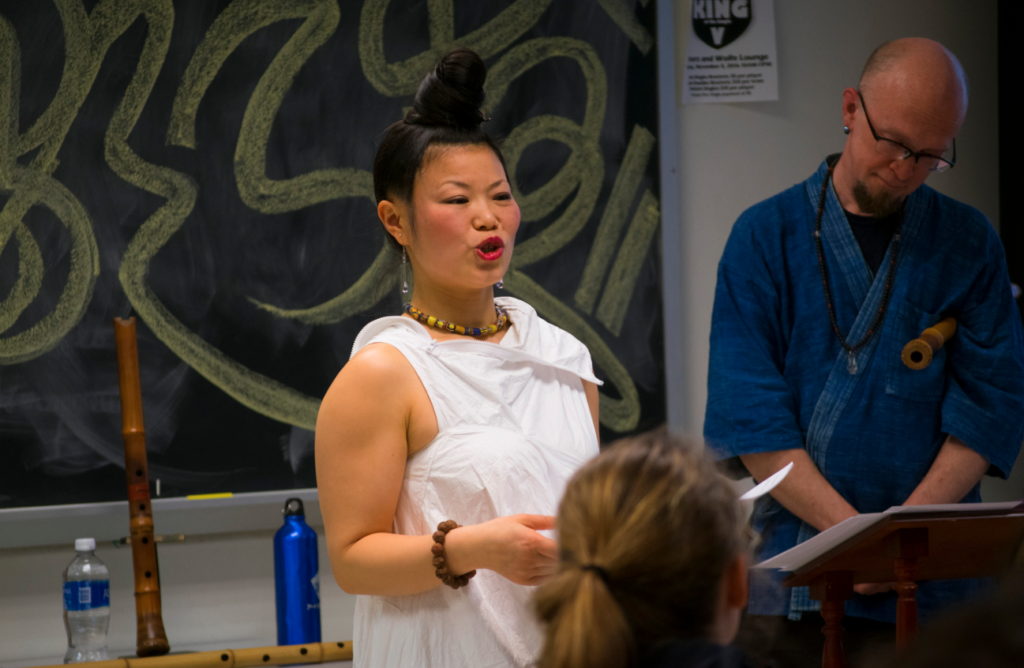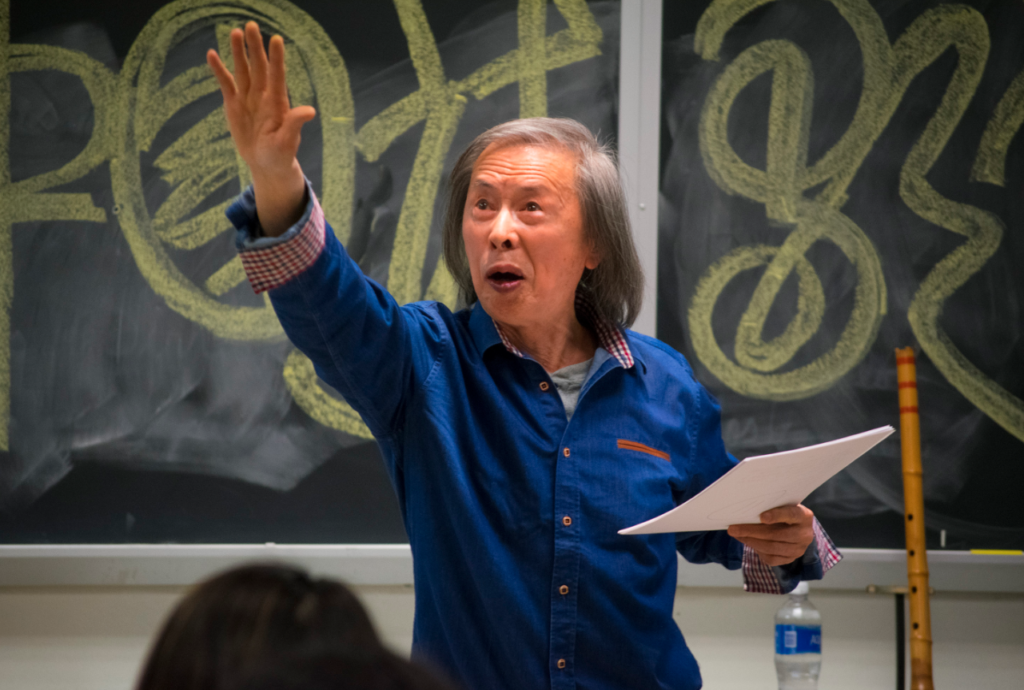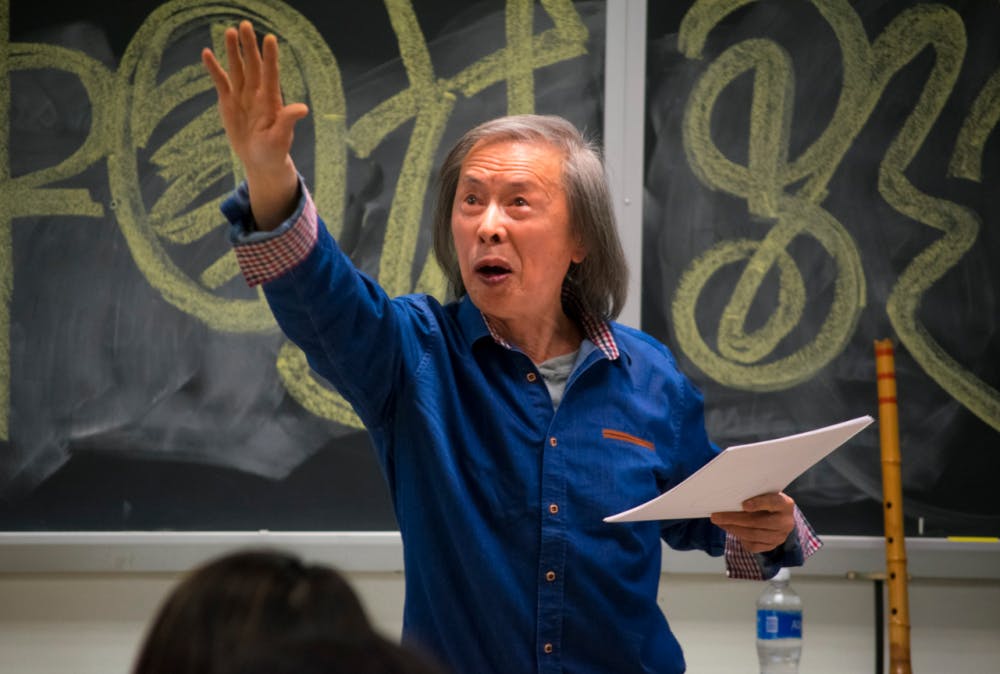By Alexis Blacknik
Correspondent
Poets Li Guitian and Huang Xiang from China shined while reciting their poems in Chinese, as Japanese musician Glenn Swann played his shakuhachi, a type of Japanese flute, on March 28 in Bliss Hall.
Jane Wong, the dean of Humanities and Social Sciences, handed out poems for students and faculty members in the audience to recite. Each piece of paper had the poems in both Chinese and English. After the poet read one in Chinese, the audience member holding that poem would recite it aloud in English.
Swann, a Japanese Shakuhachi master performer, played the shakuhachi as both Guitian and Xiang recited their poems. The shakuhachi is a long Japanese wooded end-blown flute that resembles a large recorder, which produces airy, breathy notes.
Wong gave a warm welcome to the three performers and

encouraged students to give their undivided attention, saying how “generations and generations, classes and classes of TCNJ students” were going to be moved that night.
Guitian, nicknamed “Red Square,” is a famous poet from China. She is also a tea master, calligrapher and a ceramic artist.
Draped in bright white fabric and hair tied up in a bun on the crown of her head, Guitian read her favorite poem, “Red,” first. Her tone of voice continuously fluctuated as she covered ideas ranging from love to fear and talked about different aspects of life represented by various shades of red.
“It was interesting how much she relied on the color red in her writing,” said Lauren McNulty, a freshman international studies major. “The flute in the background really helped tell Red Square’s story.”
The topics varied from the color red to food and drinks, like bread and tea, to her beloved family.
Wong then introduced Xiang as an important contemporary Chinese poet who is similar to Walt Whitman.
Between 1959 and 1995, Xiang was in prison six times in China. He insisted on freedom of speech for all Chinese citizens. Currently living in New York City, Xiang has a reputation as a great calligraphy artist, poet and publisher. One of his scrolls, in fact, is featured in the Bliss Hall Lounge.
As Xiang recited his poems, his artwork projected behind him, featuring a range of colors and style of brush strokes. They embodied his poems and brought together different aspects of his work.
Xiang was very theatrical, constantly changing his body language throughout his performance. The volume of his voice changed based on what he was reciting.

During one of his poems, he acted out how he felt, curling himself into a ball and jumping up and down,
“What had unfolded is now curled up. What had been hidden is now revealed/ In the dim thick dark, one always jumping up somewhere; one always coming down somewhere,” he said.
Xiang’s pieces will be recognized at The Maridon Museum in Butler, Pa., from Saturday, April 8, to June 3. The gala opening is funded by the Christine Frechard Foundation, featuring “A Cosmic Contemporary Collaboration.”
“Huang Xiang’s stories in particular were extremely moving,” said Juliana Rice, a freshman international studies major. “It was an honor to be able to hear his poems in person.”
When the poetry reading came to a close, audience members in awe of the artistry they witnessed showered the performers with gratitude and applause.







